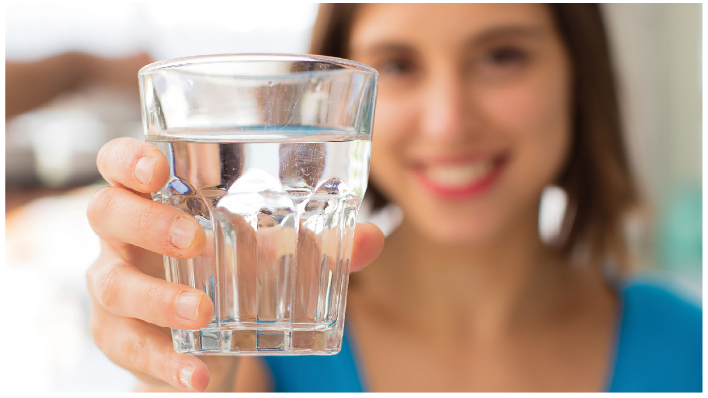
10 COMMITMENTS AS CLEAR AS MADRID'S WATER
As we want to speak to you clearly and offer you more solutions for your needs, we have taken another step in our relationship with you. We assume 10 commitments with which to continue providing you with a quality, fair and transparent service. 10 commitments as clear as the water of Madrid.
CANAL IN 60 SECONDS
The care of our rivers begins in thewaste water treatment plants and continues in our laboratory in Majadahonda, where we analyze the water that we return to the rivers. Julio Rodrigo explains what the analysis of treated waste water consists of and why it is so important for the environment.
COMMITED TO SUSTAINABILITY
In 2021, the year of our 170th anniversary, we promoted environmental care from all our activities. This year, we continue working to keep guaranteeing the water supply, contributing to the protection and improvement of the environment, the promotion of the circular economy and the sustainability of the region.
TAP WATER: GUARANTEED QUALITY
DE MADRID Y DEL GRIFO
In our blog you will find tips to save water and learn how we work to convey it with the best quality to your tap in Madrid
DE MADRID Y DEL GRIFO
In our blog you will find tips to save water and learn how we work to convey it with the best quality to your tap in Madrid
Suscríbete al blog
Back TAP WATER: GUARANTEED QUALITY
TAP WATER: GUARANTEED QUALITY
Canal analyses the water every five seconds to guarantee that the quality is excellent

Some sectors of the society believe that tap water is of lower quality than bottled water, but this is only a myth. Tap water is one of the food products that undergoes the highest number of analytical tests. This meticulous monitoring is both the cause and the consequence of a supply to the population which is totally guaranteed.
Water intended for human consumption must be of a suitable health quality after its treatment and storage in the distribution network. Therefore, from the moment it leaves the connection point until it reaches the tap, it passes through numerous controls, monitoring, processes and tests.
With respect to this control process, Canal de Isabel II, which is responsible for managing all the stages of the water cycle in the Community of Madrid, has always been willing to go further than necessary to supply water of the best possible quality. This is the reason why it uses the latest cutting-edge technologies.
The monitoring of the water supply starts at the origin, that is, in the reservoirs, rivers and wells; it continues during its treatment in drinking water treatment plants and as it passes along the distribution network until it is delivered to the meters of the consumer. At this point it should be noted that the geography works to the advantage of the people of Madrid, as the reservoirs of Canal are in granite areas which facilitates a low water salinity, making the taste more pleasant.
In any case, throughout the process, the water is subject to numerous controls as it passes through the system. The most exhaustive of these, with the highest number of tests, takes place while the water is in the distribution network. Two programmes based on manual sampling are used to monitor the water: one systematic programme at specific points and moments; and another auxiliary programme with no defined schedule. In addition to these, there is a significant network of automatic monitoring stations (AMS).
These are equipped with numerous sensors which measure a series of parameters and send the results in real time to the Control Centre. All of these test the chlorine, ammonia, nitrites and pH; some also measure the total organic carbon, nitrate and turbidity. And as if that was not enough, Canal also has 21 laboratories which offer increased reliability, if necessary, to the monitoring programme. In total, the company conducts six million tests per year, that is, one every five seconds.
This is why more and more people are replacing bottled water with tap water, as they are aware now of the benefits of this. In addition to the difference in price, as bottled water may be up to one thousand times more expensive that tap water, there is the reduction of the plastic footprint. In this respect, the use of bottles or glass jars is a great idea. If we fill them with tap water and keep them in the fridge, we will always have fresh water that is perfect for drinking. And at almost zero cost, without generating any plastic waste at all.
Suscríbete al blog
